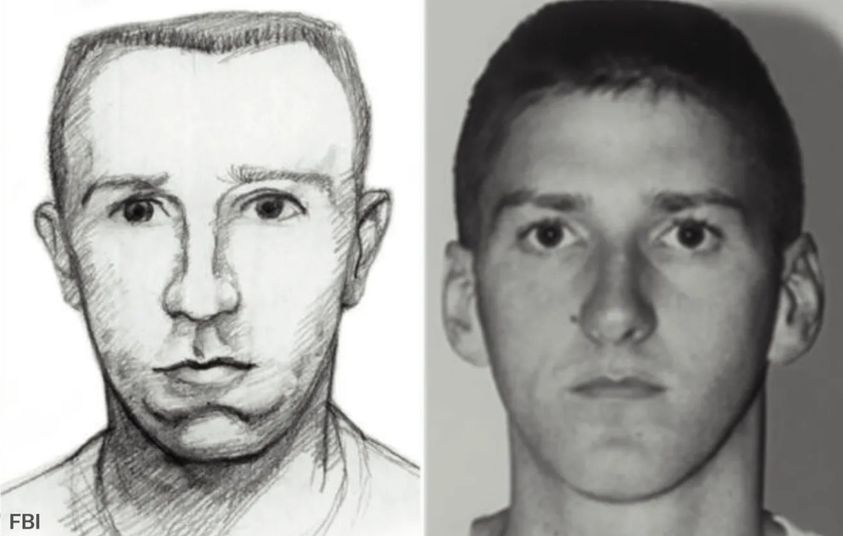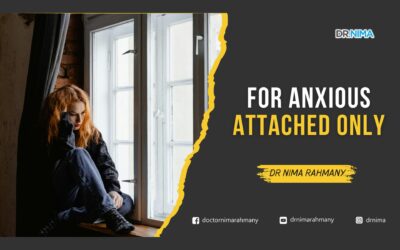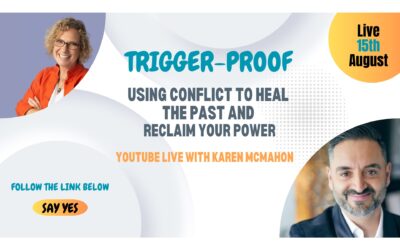In the silent corridors of our hearts,
where the echoes of conflict reside,
you find yourself weary.
Arguments get volatile,
The endless cycle of walking on eggshells,
the back-and-forth bickering, the invalidation,
what feels like gaslighting during every argument—
You feel trapped and hopeless,
wondering if you should stay or go.
And amidst it all, a single, maddening thought persists:
"Why, when I share my feelings, do they always make it about THEM?
Can't they see the pain they're causing?"
You might even suspect they’re doing it “on purpose.”
“They KNOW my attachment wounding…
they’re TRYING to hurt me. Why can’t they see that?”
The hard truth is—often, they CAN’T.
Not in the heat of the moment, anyway.
And depending on their self-awareness and their capacity to confront their own shadows,
they might never fully grasp it.
It's a bitter pill to swallow.
I've been there, arms flailing in the air in protest,
seeking acknowledgment for my experience,
feeling dehumanized, blamed for every emotion she was having in my own trauma-bonded past relationship.
It's a level of frustration that words barely capture.
If this dynamic feels all too familiar, know this:
It's not your fault.
And this statement isn't a platitude;
it's a recognition of the complex dance of protection and defense we engage in as humans who are at the mercy of our trauma responses.
Beneath this reactive exterior,
and this endless cycle
of love-bombing, devaluing, and discarding lies a deeper truth,
a shadow we're often too afraid to confront:
The part of us that fears we MIGHT BE the monster (or “bad guy”).
We all harbor an inner "destructive monster," in our own form.
Whether it’s physical or emotional abuse like (in my last relationship,)
or it’s wielding our emotions like weapons,
trampling over boundaries,
engaging in gossip,
reputation smearing,
judgment, blame,
or even emotional withdrawal (which can feel like a perpetration),
there's a part of you, forever frozen at 16-18,
fueled by righteous anger, ready to say F-YOU to the world,
burn it all down, or blow it all up.
Thats our inner Perpetrator.
Dissillusioned and tired of feeling so victimized and unappreciated.
Acknowledging this inner monster isn't admitting defeat;
it's embracing the full spectrum of our humanity.
When we get pushed SO FAR that we perceive we are
having our IDENTITY violated, we have a protective “kill response” that will resort to murderous rage
if it perceives it’s been threatened enough.
Think of "momma bear" protecting her cubs.
This is not a “bad” part of you. As Richard Schwartz,
founder of IFS states, there are “no bad parts”.
We simply don’t receive the training on how to channel these “perpetrating” parts of us.
We don't learn how to turn it into fuel.
We don't study in school
how to to alchemize the resentment, blame,
and shame into an inspiring purpose or creativity.
So we suppress and deny the emotions,
only to make them stronger and bury them into toxic shame.
I once believed my ex was the problem in our relationship
with her unpredictability and mood swings (which I made myself responsible for).
Yet, the journey through my own shadows and guiding others through theirs has shown me a profound truth:
The most significant challenge we face in our relationships
is our blindness to our role as the perpetrator.
THIS VICTIM/PERPETRATOR DANCE IS FUELED BY OUR UNWILLINGNESS OR INABILITY TO SEE AND OWN OUR PART IN THE DYSFUNCTION.
From my observation, it's the greatest of all relational blind spots—one that comes at too high of a cost.
If left unaddressed, it perpetuates an endless loop of blame,
passing the shame back and forth like a hot potato, leaving us feeling isolated, misunderstood, and trapped in a narrative of victimhood.
I've danced this exhausting dance, a choreography learned in childhood.
But here's the liberating truth:
It doesn't have to be this way.
Once I embraced the journey to become Trigger-Proof, and learned how to create polarity on the OTHER SIDE of a secure bond, emotional maturity replaced the teenage-type bickering.
We became allies instead of opponents.
The "me" orientation was replaced with the "we".
We when we can both acknowledge and understand the potential perpetrator within, the entire landscape of a relationship can transform into understanding.
Standing there, you’ll have the clarity to know whether to stay or go. A loving answer to that question simply…. emerges.
In owning my perpetrator shadow with compassion,
I reclaimed my power, stepping into a realm where all relationships now… ALL relationships…even with clients…
Are built on mutual safety,
respect of boundaries,
and understanding.
The choice is stark and simple: Confront and own your inner perpetrator, or remain trapped in a cycle of blame,
giving away power,
pushing away the secure love you truly deserve.
We can continue to spin in endless circles,
or we can choose a path to a connected,
loving bond where both parties feel seen and safe.
They might not yet have the capacity to see the harm they are causing.
And yet there’s a transformative power in acknowledging and validating your pain-- and looking at THEIRS as well and how you might be unwittingly causing it to them as well.
A topic that deserves compassion, sensitivity, and empathy-- (but first towards yourself.)
It all begins by picking up a mirror,
looking where you might not want to look,
And bringing more understanding to the monster inside.
Ironically, that’s where you’ll find the key to your power and magnetism.
“The Cave you fear entering holds the treasure you seek.”
- Joseph Campbell
Your wingman on this adventure,




